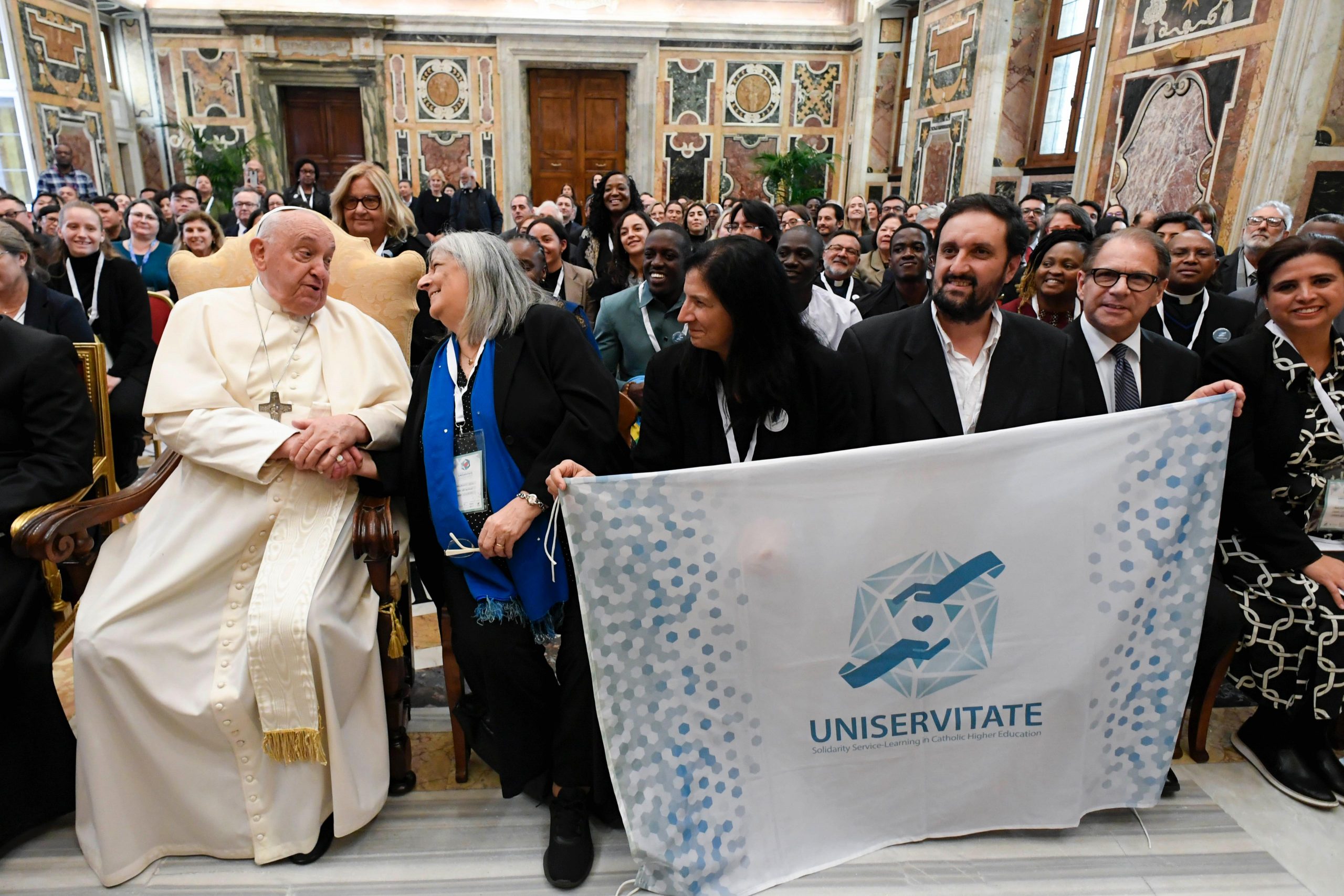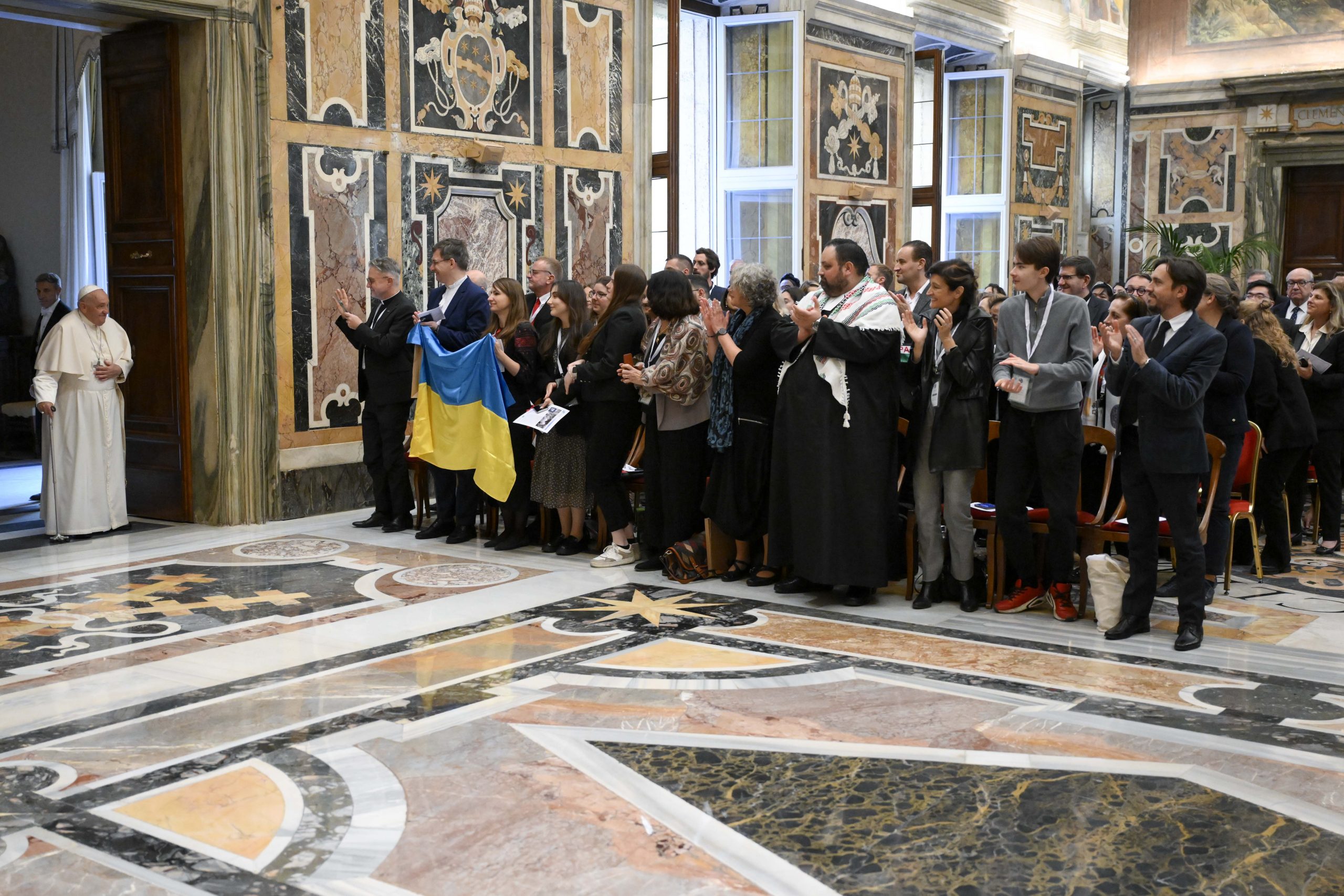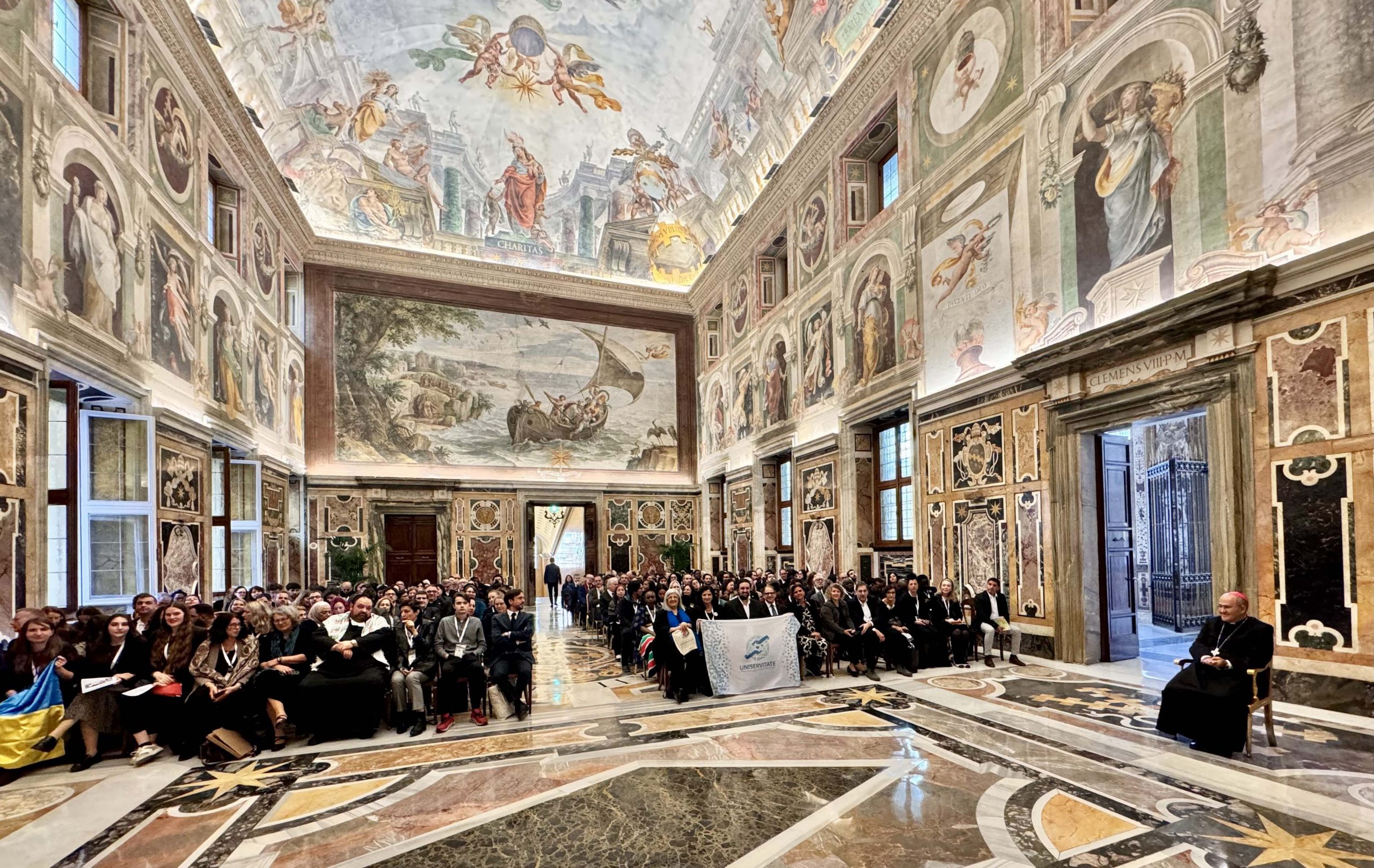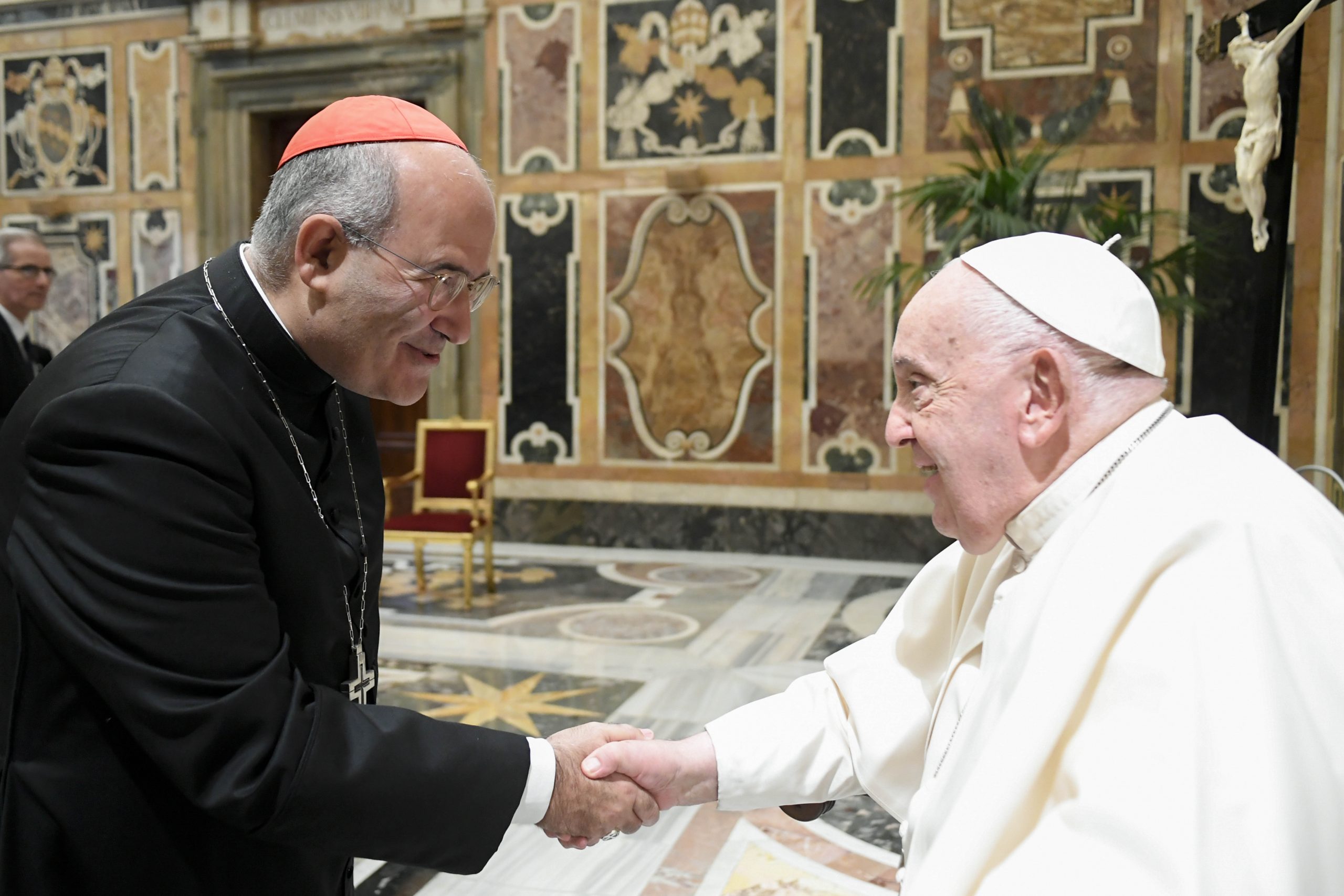(ZENIT News / Rome, 11.10.2024).- Pope Francis received the Uniservitate team in a private audience, the global program promoting service-learning in Catholic Higher Education Institutions, on Saturday, November 9.
During the meeting, Pope Francis emphasized the importance of the Uniservitate program from the Latin American Center for Service-Learning (CLAYSS), stating that “Uniservitate responds in a consistent way to the intentions of the Global Compact on Education by cultivating educational processes that involve everyone.” He continued: “An African proverb that states it takes an entire village to educate a child. Let us make every effort, then, to build such an `educational village´, where we can work together to promote positive and culturally fruitful human relationships.”

In relation to the idea that “we cannot change the world if we do not change education,” the Holy Father reflected that “it is interesting to see how Uniservitate has developed the pedagogical method of `service-learning´, by fostering a sense of communal responsibility on the part of students through social projects that are an integral part of their academic programme.”
Later, in another part of his speech and in line with the Uniservitate proposal, Pope Francis emphasized that “education is not only through the mind, but through the heart and the hands.” In contrast, he pointed out that “ideologies do not make us grow. Every type of ideology is the enemy of maturation.”
As part of the private audience with the Holy Father, the students presented him with posters summarizing the winning service-learning projects of the Uniservitate 2024 Award. Meanwhile, María Nieves Tapia, director of the Latin American Center for Service-Learning (CLAYSS), took the opportunity during the meeting to present the Pope with a copy of Solidarity as the Future of Education, the first publication created jointly by the UNESCO Office for Latin America and the Caribbean and CLAYSS. This publication brings UNESCO’s statements on the future of education into dialogue with Ibero-American service-learning experiences.

Uniservitate, an Example of Educational Partnership
For his part, Cardinal José Tolentino de Mendonça, Prefect of the Dicastery for Culture and Education, reflected: “In addition to the indispensable theoretical reflection, action is also important, as it drives us to open ourselves to others and work together. The Uniservitate network is an example of an educational partnership, attentive to the richness of the cultural diversity of each people.” He made this statement during the V Symposium, while meeting with Uniservitate authorities and rectors from universities participating in the program that promotes service-learning in Catholic Higher Education Institutions. In this context, he told them: “This ‘service-learning’ methodology is not only concerned with the methodological and didactic aspects of learning but, above all, with the human aspect.” He added: “The pedagogical methodology of ‘Uniservitate’ addresses three other terms that have become an inseparable trio in Pope Francis’ educational vision: ‘mind-hands-heart.’”
Education as a Pathway to a More Fraternal and Solidary World
The V Global Symposium Uniservitate, which brought together prominent authorities, educators, researchers, and students from around the world to explore and share best practices in integrating service-learning (SL) into Catholic Higher Education Institutions, concluded yesterday in Rome.
At the closing of the event, a Mass was held for the entire Uniservitate team at St. Peter’s Basilica, presided over by Monsignor Paul Tighe, Secretary of the Dicastery for Culture and Education.

Reflecting on the V Symposium, María Rosa Tapia, Coordinator of the Uniservitate program, stated: “In this space, we have tried to show that it is possible to come together with all our differences, from all five continents, with our realities, with the wars each of us faces, to unite in a unique peace.” In this context, she expressed her hope that “it is that peace that will allow us to return to our universities, and, as Cardinal Tolentino de Mendonça told us, for our universities to be those ‘homes of the heart,’ where, by opening the doors to our students, by opening the doors to converse with other educators, by opening the doors of the rector’s office, by opening the doors of the university itself, it will be possible for us to truly meet.” At the end, she invited the members of Uniservitate to continue their mission and said: “The world needs us. So let us be those warriors of the human spirit, who continue to ignite the torch of peace and demonstrate that through education we can collaborate to create a truly more fraternal and solidary world.”
Over the course of two days, more than 200 people from 56 Catholic Higher Education Institutions participated in the event, held under the theme “Transforming Higher Education from Within.” “Service-learning is not just a practical task for students, it’s not only about offering a service to the community, it involves transforming the way we teach. Therefore, what we aim for is to transform the university from within, from the way we teach and conduct research,” stated María Nieves Tapia on the theme of this year’s Symposium.

The event also served as a space to share reflections on possible ways to institutionalize service-learning in Catholic Higher Education Institutions and deepened the discussion on the spirituality of service, exploring the connections between these themes.
The V Symposium, organized by Uniservitate and LUMSA University, also addressed the intersections between the Global Compact on Education, the Sustainable Development Goals, and best practices in service-learning, as well as presenting ongoing research.
Uniservitate Award 2024
The V Symposium was also the stage for students and educators from the winning projects of the Uniservitate 2024 Award to share their experiences. In this second edition of the Award, which recognizes the best service-learning initiatives in Catholic Higher Education Institutions worldwide, 311 projects from five continents were submitted. Of these, 14 were awarded first place, and another 14 received special mentions.
“Service-learning is not just about learning from the community; it’s a form of solidarity to transform the community,” said Caroline Nthenya, a student at Tangaza University and one of the winners of the Uniservitate Award. For her, “service-learning requires an open mind, because it’s not just about gaining benefits from the learning one receives as a student, but about sharing that knowledge to transform the community.”
The Uniservitate program is supported by the Porticus Foundation and the Latin American Center for Service-Learning (CLAYSS).
Those who wish to revisit the Symposium sessions can do so through the Uniservitate YouTube channel (in English) and the CLAYSS YouTube channel (in Spanish).
Thank you for reading our content. If you would like to receive ZENIT’s daily e-mail news, you can subscribe for free through this link.



